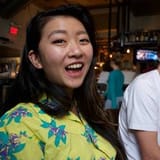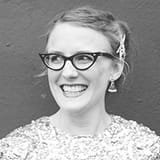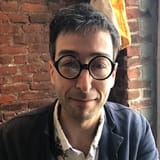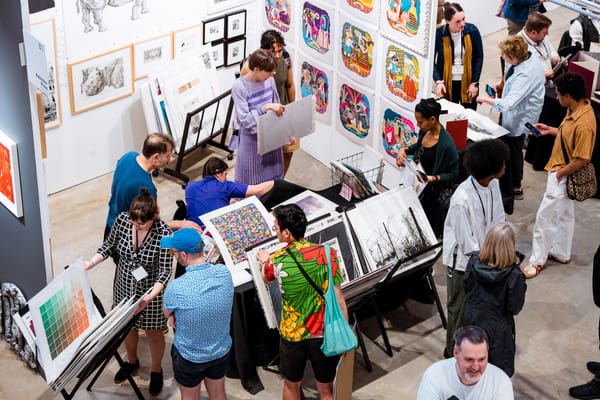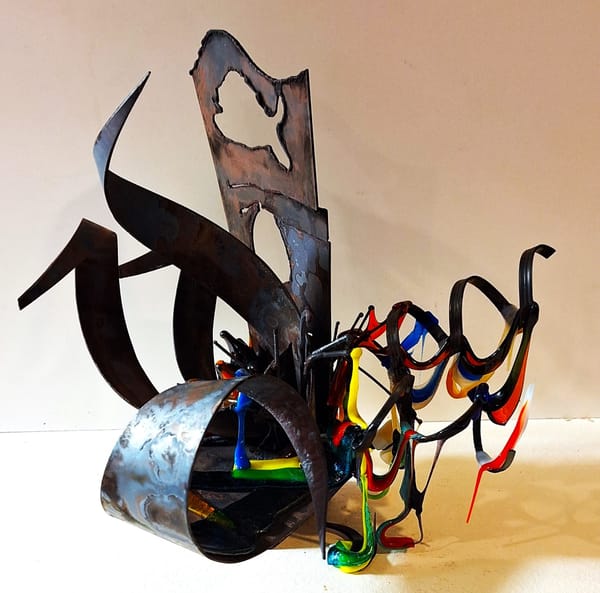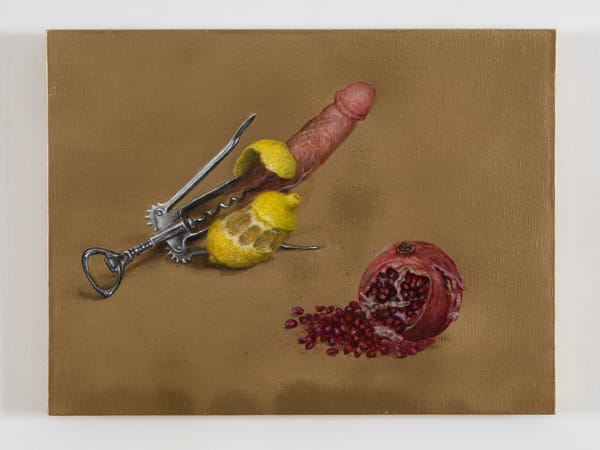Five New York City Art Shows We Love Right Now
Whether your preference is abstraction or history, we’ve got you covered with shows featuring Anish Kapoor and others, as well as historical artifacts.
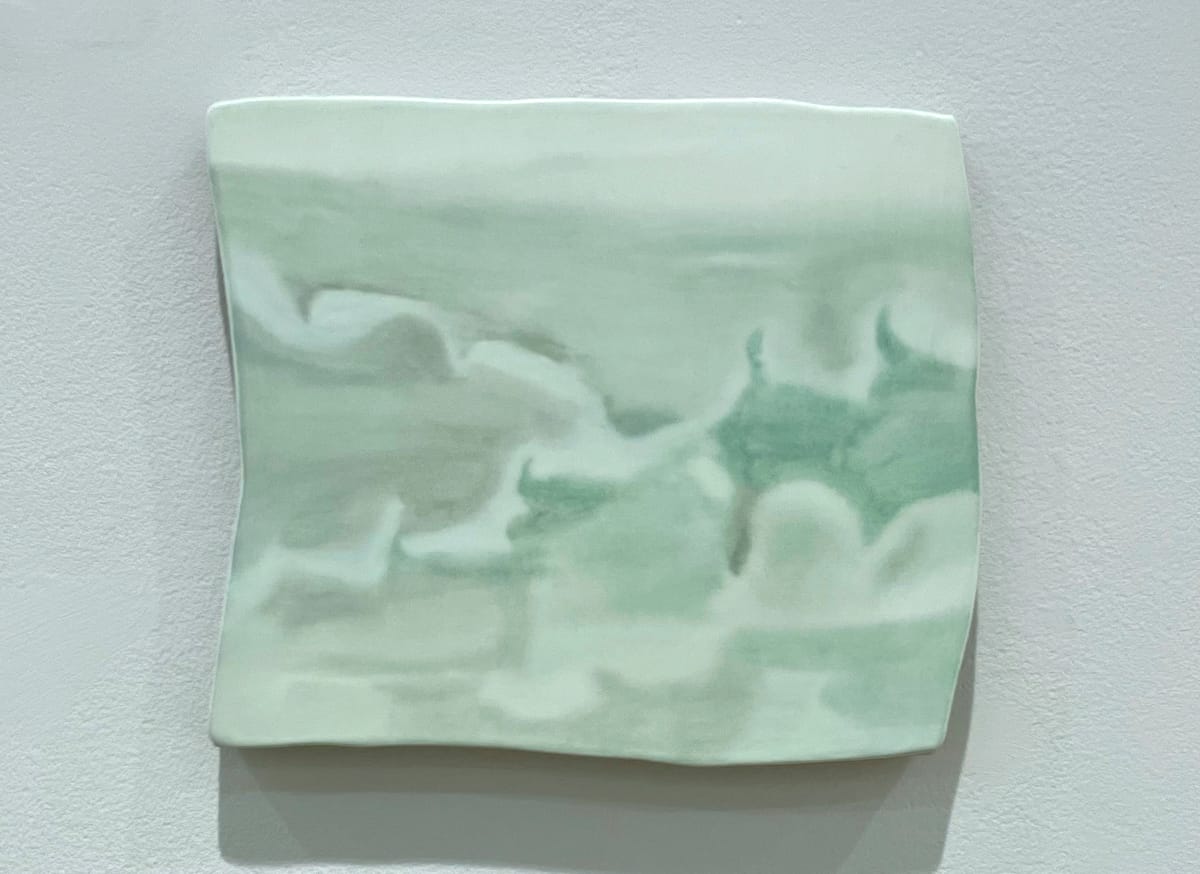
What happens when abstract art gets inventive, playful, even rebellious? A handful of current exhibitions offer compelling answers. Painting in Space brings together four titans of abstraction — Al Held, Elizabeth Murray, Judy Pfaff, and Frank Stella — whose visions of space, flatness, and opticality are as radical now as they were decades ago. Anish Kapoor’s early pigment sculptures at the Jewish Museum also pushed boundaries and set the stage for the monumental artworks for which he’s best known today. These creators laid the groundwork for later generations of artists, including Luz Carabaño, whose quiet, dreamy paintings are almost hypnotic.
If abstraction isn’t your preference, check out An Incomplete Haunting and Designing Motherhood. Both look back at important histories, the first focusing on how past politics shape us today and the second on how product design plays a part in parenting. —Natalie Haddad, Reviews Editor
Singing In Unison, Part 12: Painting In Space
Art Cake, 214 40th Street, Sunset Park, Brooklyn
Through December 7
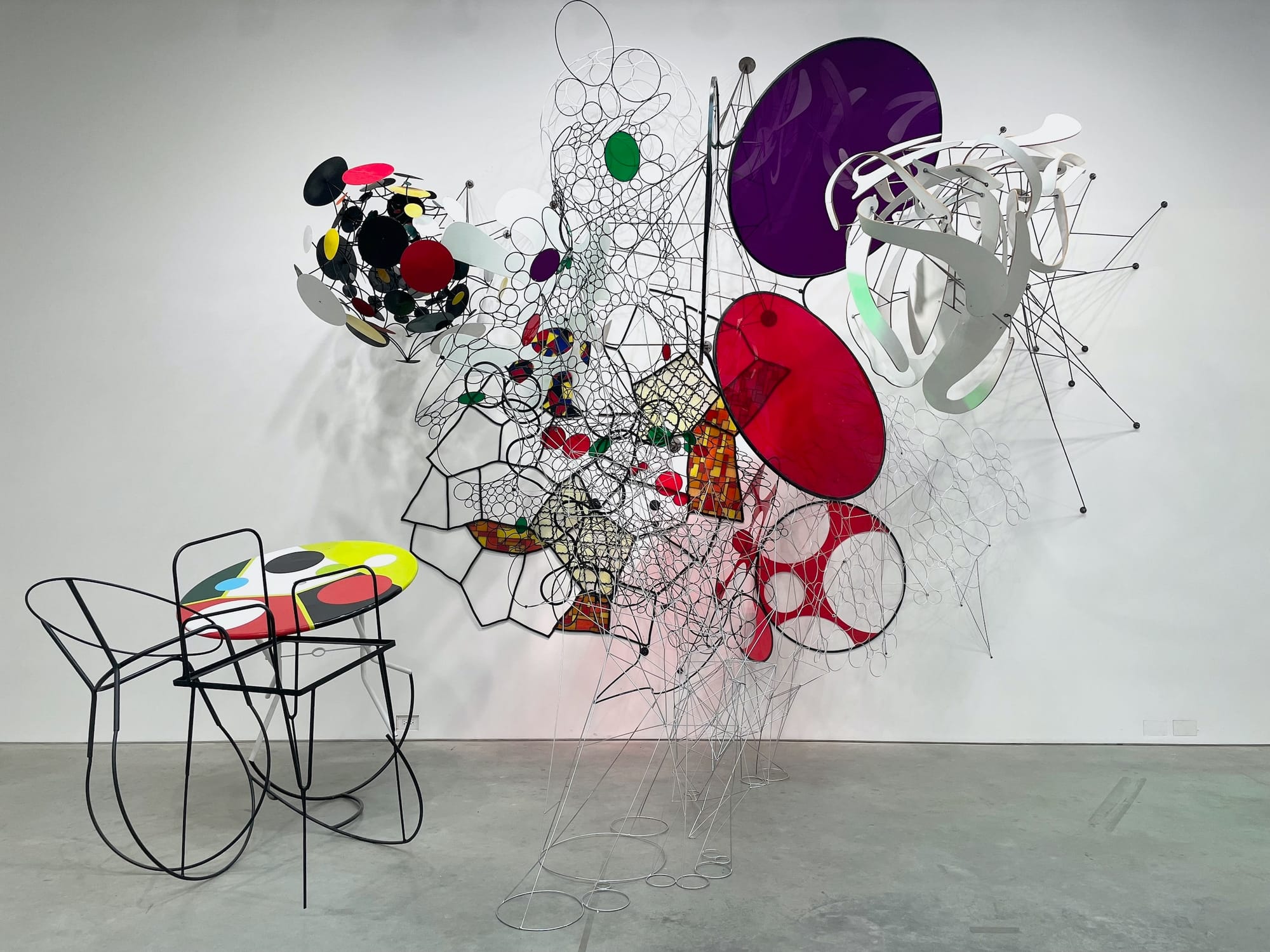
"Even now, when they’ve been inducted into the canon of American abstraction, it’s clear that [the artists] relentlessly pursued their own trajectory." —John Yau
Luz Carabaño: currents
Hoffman Donahue, 99 Bowery, 2nd Floor, Lower East Side, Manhattan
Through December 20
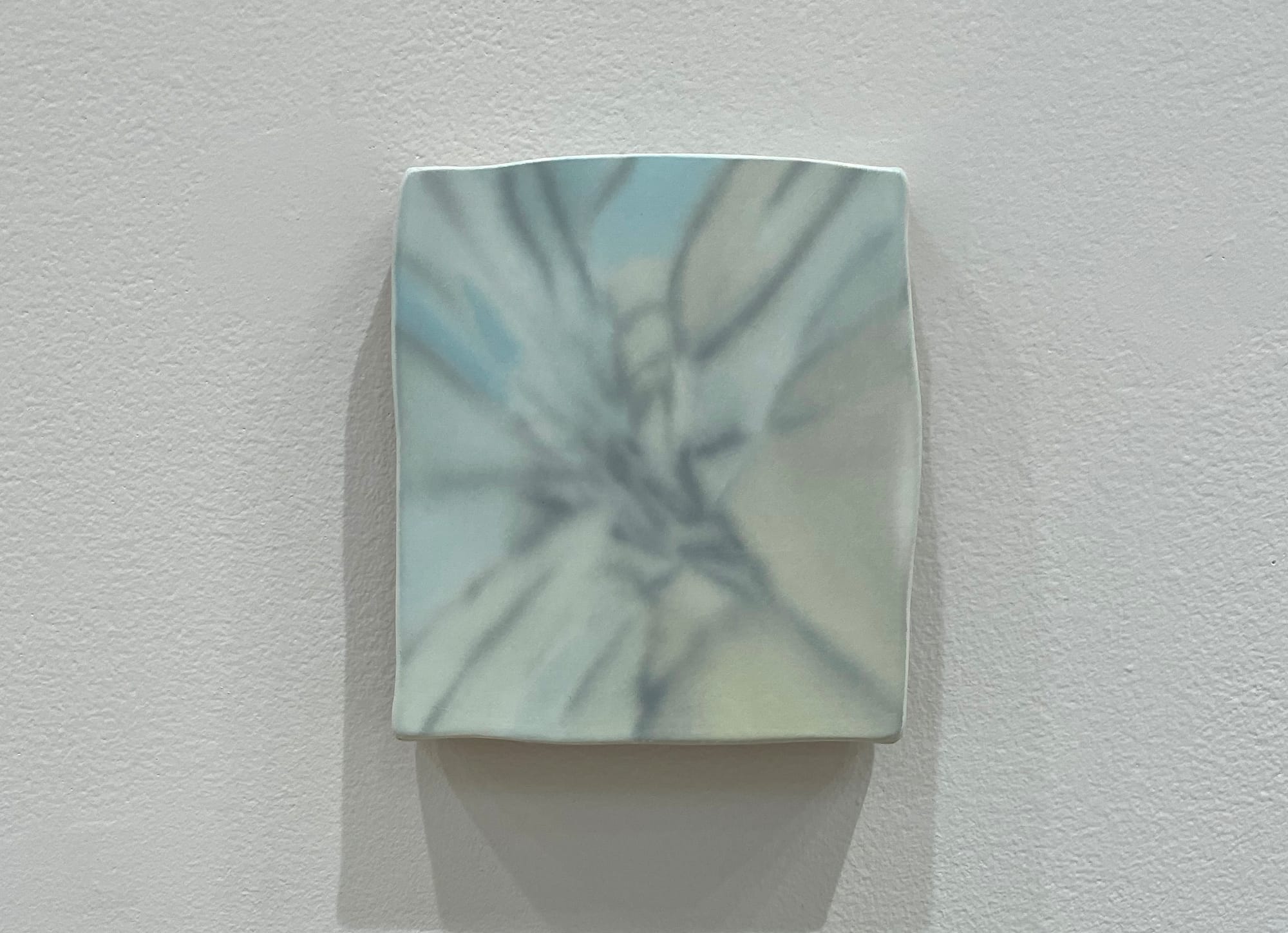
A quick glance at Luz Carabaño’s oil paintings could lead someone to dismiss them as lightweight crowd pleasers. Their convenient sizes, most ranging from tiny to merely small, and sweet, muted palettes make them almost too charming. But spend more time with them and their complexity unfolds. The artist works on canvases that are just a little irregular, like a rectangle drawn with an unsteady hand, undulating subtly. Nothing about the works seeks to greedily grab attention. Instead, their smooth, luminous surfaces, stained with amorphous dots and lines, become ever more hypnotic. In her 2023 Hyperallergic review, Renée Reizman likened them to “nebulae, swamps, or glazed confections.” Here, the hazy sheen of “estrellón” (2025) combines with its pale blue and peach palette and soft radiating beams for something that seems far bigger than its five by five-and-a-half inches; its lustrous light appears almost divine. Similarly, the cloud-like forms in the minty green and white “cruce” (2025) evoke a world on the cusp of memory. Sit with the exhibition for long enough and you might feel like you’re dreaming. —NH
Anish Kapoor: Early Works
Jewish Museum, 1109 Fifth Avenue, Upper East Side, Manhattan
Through February 1, 2026
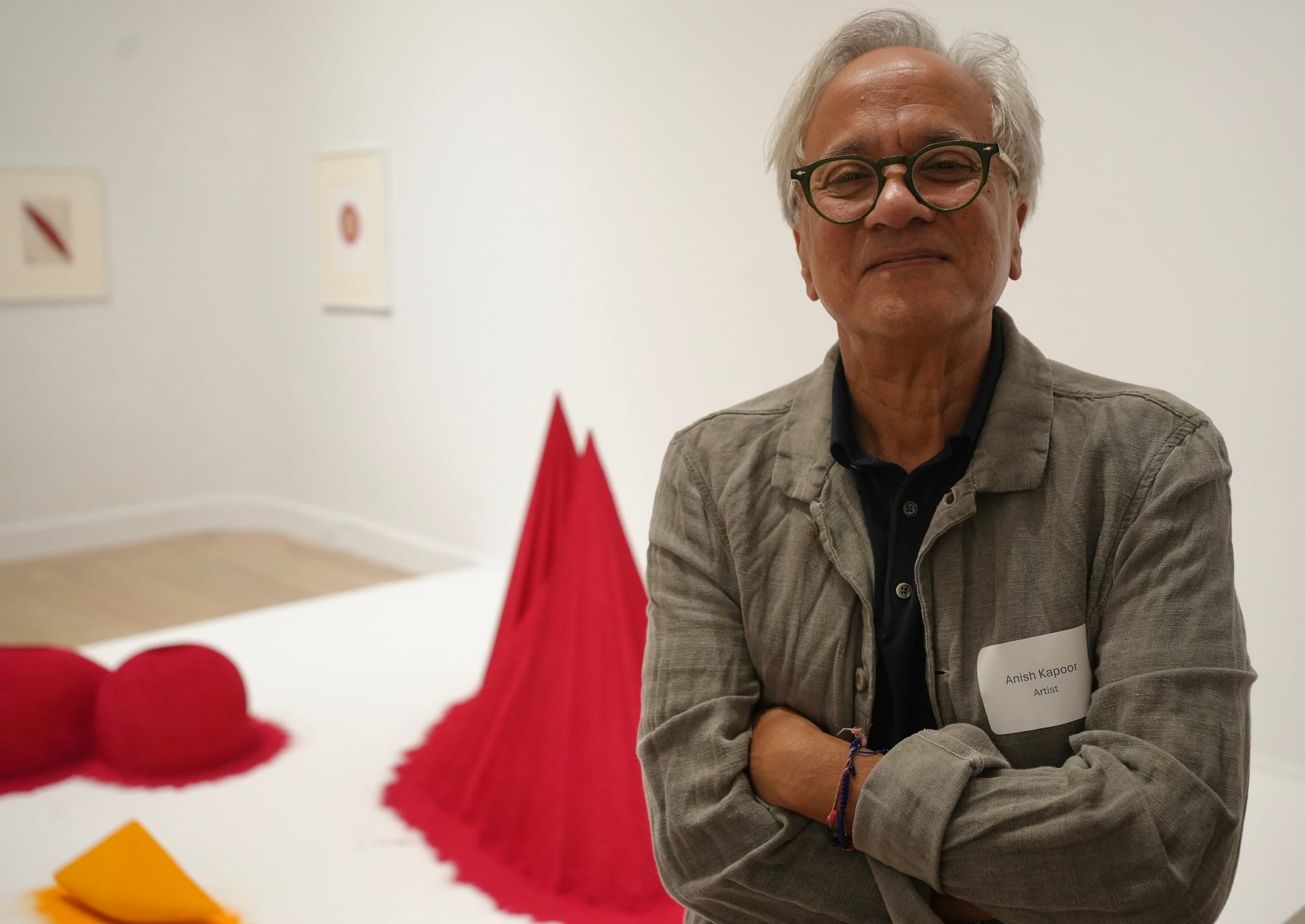
"[Kapoor] acknowledged that embracing one’s Jewish identity while opposing Israel’s catastrophic destruction of Gaza in the aftermath of Hamas’s October 7 attacks evoked complicated feelings." —Aaron Short
An Incomplete Haunting
601Artspace, 88 Eldridge Street, Lower East Side, Manhattan
Through February 22, 2026

"One notable … emphasis in this show is on recreations and reenactments, suggesting that there are more impactful ways to tell the truth than simply recounting what happened" —Lisa Yin Zhang
Designing Motherhood: Things That Make and Break Our Births
Museum of Arts and Design, 2 Columbus Circle, Columbus Circle, Manhattan
Through March 15, 2026
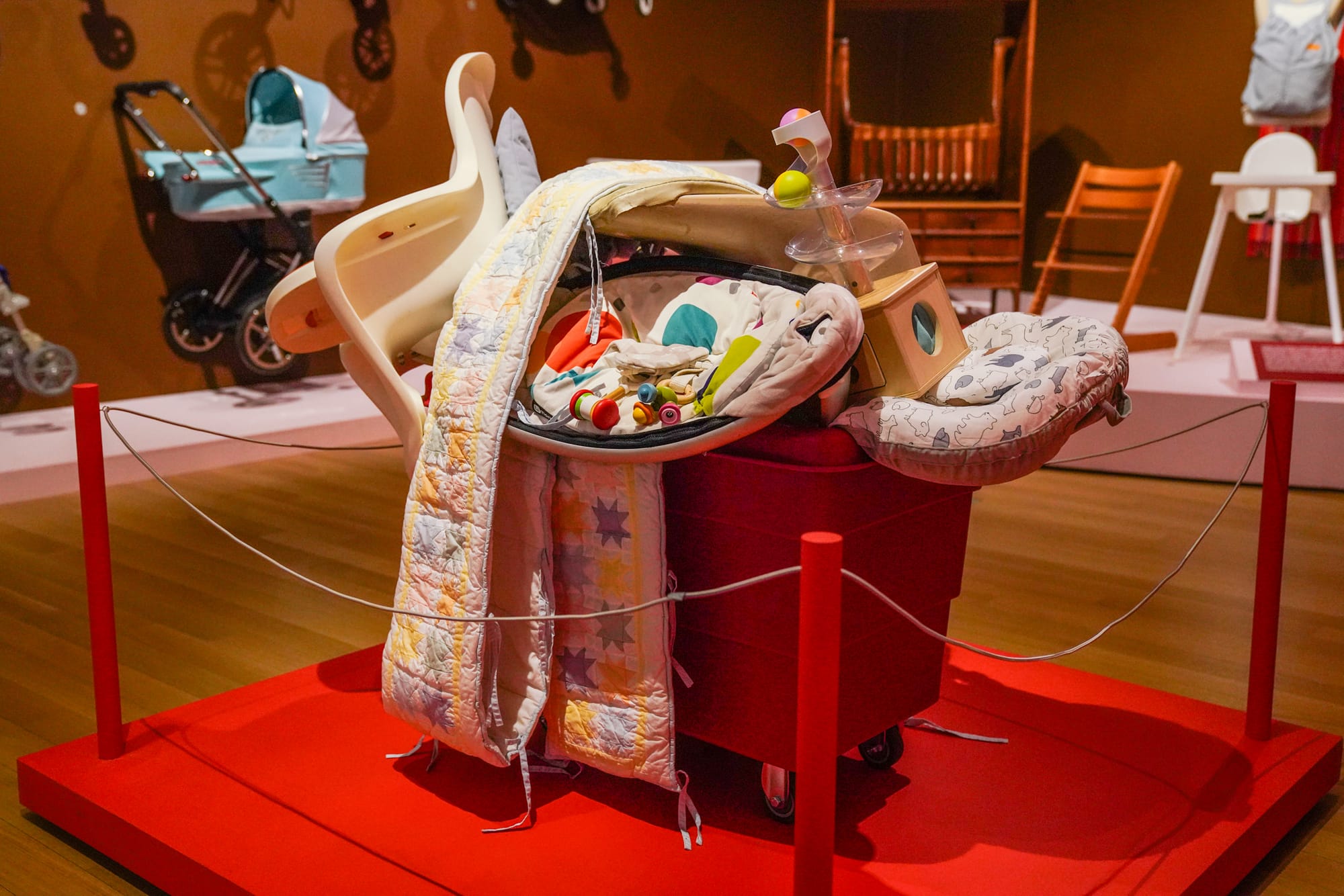
"[The exhibition] illuminates how design shapes diverse experiences of parenthood, from navigating fertility and conception to pregnancy, birth, and postpartum life." —Julie Schneider


